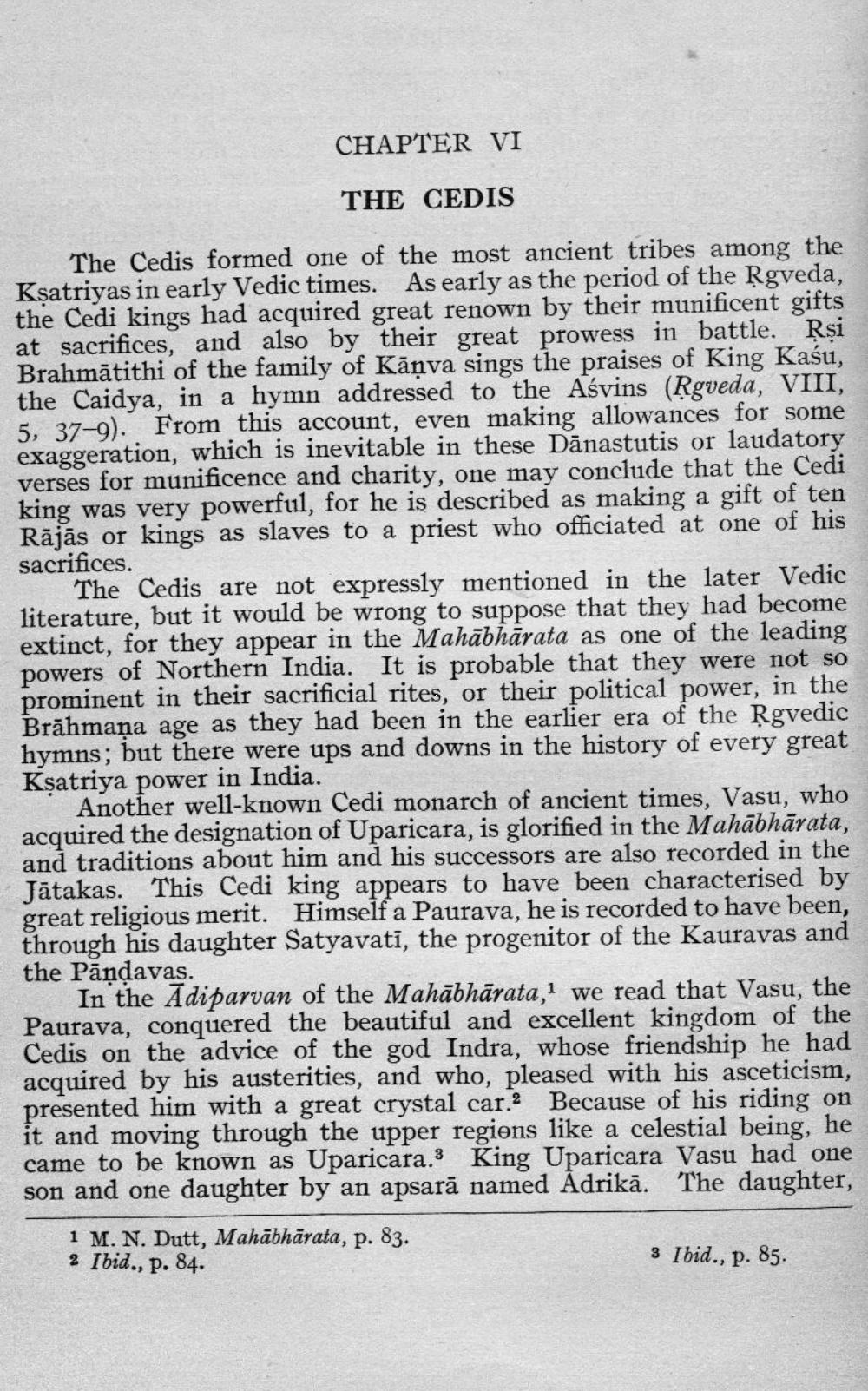________________
CHAPTER VI
THE CEDIS
The Cedis formed one of the most ancient tribes among the Kṣatriyas in early Vedic times. As early as the period of the Rgveda, the Cedi kings had acquired great renown by their munificent gifts at sacrifices, and also by their great prowess in battle. Rṣi Brahmätithi of the family of Kanva sings the praises of King Kaśu, the Caidya, in a hymn addressed to the Aśvins (Rgveda, VIII, 5, 37-9). From this account, even making allowances for some exaggeration, which is inevitable in these Danastutis or laudatory verses for munificence and charity, one may conclude that the Cedi king was very powerful, for he is described as making a gift of ten Rājās or kings as slaves to a priest who officiated at one of his sacrifices.
The Cedis are not expressly mentioned in the later Vedic literature, but it would be wrong to suppose that they had become extinct, for they appear in the Mahabharata as one of the leading powers of Northern India. It is probable that they were not so prominent in their sacrificial rites, or their political power, in the Brāhmaṇa age as they had been in the earlier era of the Rgvedic hymns; but there were ups and downs in the history of every great Kṣatriya power in India.
Another well-known Cedi monarch of ancient times, Vasu, who acquired the designation of Uparicara, is glorified in the Mahabharata, and traditions about him and his successors are also recorded in the Jātakas. This Cedi king appears to have been characterised by great religious merit. Himself a Paurava, he is recorded to have been, through his daughter Satyavati, the progenitor of the Kauravas and the Pandavas.
In the Adiparvan of the Mahabharata,1 we read that Vasu, the Paurava, conquered the beautiful and excellent kingdom of the Cedis on the advice of the god Indra, whose friendship he had acquired by his austerities, and who, pleased with his asceticism, presented him with a great crystal car. Because of his riding on it and moving through the upper regions like a celestial being, he came to be known as Uparicara.3 King Uparicara Vasu had one son and one daughter by an apsara named Adrikā. The daughter,
1 M. N. Dutt, Mahabharata, p. 83. 2 Ibid., p. 84.
3 Ibid., p. 85.




